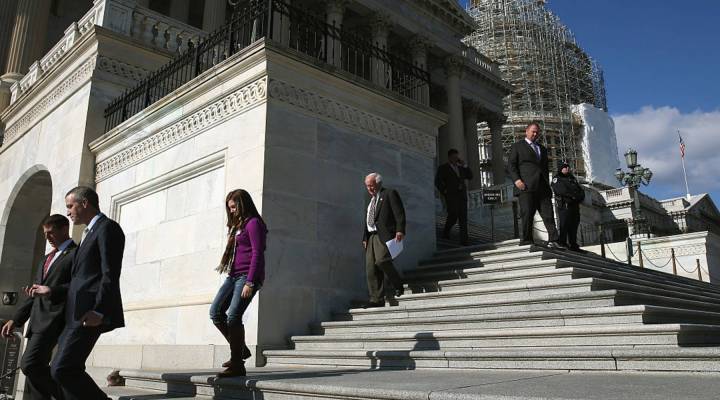
Feds push to increase probation period for new hires

As the economy improves, the job market is getting a bit tighter, meaning organizations have to work even harder to lure the best talent. Among those organizations: the federal government.
Officials have long-complained government salaries and benefits have lost their competitive edge. The Department of Defense has already doubled the probation period for new employees to two years. Now, a bill moving through Congress would allow other federal agencies to do the same.
Thomas Burger, executive director of the Professional Managers Association, which represents managers working in the federal government, said managers often need more time to assess employees who have to complete a significant amount of training before they actually start working — jobs like air traffic controllers or IRS auditors.
“We think one year is too short, and two years is about the opportune time,” said Burger, arguing that would give managers enough time to “get to see the finished product and go out and do evaluations on field visits with them.”
But some argue a longer probation may not be the best way to make sure a hire is the best fit.
“It shouldn’t really be about the length of the probationary period,” said Max Stier, president of the Partnership for Public Service, which focuses on government efficiency. “The focus should be on are we using it well to assess the talent and make sure we have the right folk for the workforce.”
Plus, the government is already having a tough time recruiting top talent.
Lee Stone, a vice president for the International Federation of Professional and Technical Engineers, said government jobs used to strike a balance, with employees being told, effectively, “You’re not going get rich being a federal employee, but in return for taking a job at below-market rate for your salary, you have enhanced job stability and you have good benefits,” he said.
Now, according to Stone, shrinking pensions, a growing pay gap with the private sector, and the almost annual government shutdown threat undermine that deal. A long probation period during which employees can be fired without fault could add another reason why top candidates might avoid federal jobs.
There’s a lot happening in the world. Through it all, Marketplace is here for you.
You rely on Marketplace to break down the world’s events and tell you how it affects you in a fact-based, approachable way. We rely on your financial support to keep making that possible.
Your donation today powers the independent journalism that you rely on. For just $5/month, you can help sustain Marketplace so we can keep reporting on the things that matter to you.


















